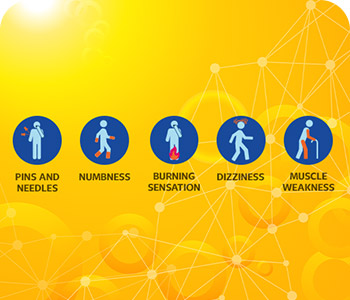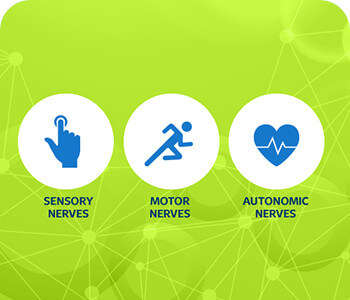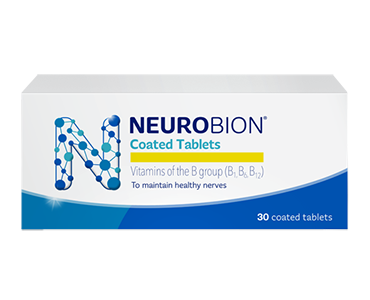Good habits for living with nerve discomforts
If you have some kind of nerve discomforts, resulting in unpleasant sensations like, loss of feeling and tingling, everyday life can be a struggle. Having a healthy lifestyle can help you feel your best and help to manage your day-to-day.
First of all, be aware of these nerve related discomforts or symptoms, called “neuropathic” symptoms: it is important to recognize the possible symptoms of nerve damage early, because the preventive and treatment measures should be started as soon as possible.
Improving your quality of life while suffering from these nerve discomforts requires treating the conditions causing neuropathy.
The cause, obviously, needs to be fully identified by your doctor. Depending on the cause, this process could involve, for example, keeping your blood sugar under control, if you are diabetic or at risk to develop diabetes, and limiting alcohol drinking. Alcohol is toxic for nerves, additionally it can lead to deficiency in essential vitamins and lead to nerve impairments.
Correcting nutritional imbalances by taking vitamin supplements and altering your diet can also be a good idea. Including fruits, vegetables, whole grains and lean protein in your diet is particularly important to ensure the right amount of essential vitamins and minerals, while neurotropic B vitamins supplementation has been shown to maintain a healthy nerve function.
If correcting the underlying issue isn't possible, however, the following beneficial lifestyle habits or home remedies can still help you live well with neurological symptoms.

Do daily foot self-checks.
Peripheral neuropathy often causes numbness or an impaired ability to feel pain, particularly in the feet. Because of this, it's important for people with neuropathy — especially diabetic neuropathy - to do daily foot self-checks every day for any signs of cuts, blisters, or calluses checking the tops, soles, and between each toe. Why check? Due to numbness, you might not notice small injuries and these conditions could develop and become infected without your knowledge. If you can't easily see the bottom of your feet, use a mirror or ask someone to help. Never ignore a problem you find, and if there's any delay in healing, see your doctor right away.
Don’t forget, wearing padded or orthopedic shoes with soft and loose cotton socks can help reduce the chances of sores developing on the feet and going barefoot can be risky sometimes: it invites injury, especially when sensations in your feet are impaired. So be careful walking around barefoot!

Normally, if your sugar gets too low (hypoglycemia), you’ll have symptoms, like sweating and shaking The best way to prevent hypoglycemia is to enjoy smaller meals more frequently and not skip meals.

Prolonged body positions, like when you lean on your elbows on the table, may put pressure on certain nerves. Nerves that are impaired can get damaged more easily when pressure is applied.

Massage can improve circulation in problematic areas associated with neuropathy, such as the feet and legs and just makes you feel better.

People with neuropathy sometimes also suffer from anxiety and depression which can make the symptoms, especially neuropathic pain appear worse. If you experience these symptoms talk to your doctor. He may suggest medication as well as relaxation techniques, such as visualizing, breathing exercise, meditation, massage, and yoga.

Regular exercise, such as walking three times a week, can improve muscle strength, reduce cramps, help to maintain muscle mass and help control blood glucose levels. Yoga, swimming and tai chi might also help you to improve your health and feel good. Be sure to choose a trusted physical therapist who understands neuropathy, diabetic or otherwise, to help you work through physical therapy methods. Keep in mind, too, that physical therapy can soothe body discomforts in general and also those related to nerve damage, but not cure it. Exercise also boosts your mood and provides stress relief, so you're better able to deal with the discomfort. So what are you waiting for?
All medical information should be considered only for educational purpose and are not intended to replace medical advice from, or your treatment by, a qualified medical doctor. Talk to your doctor in case you have any concern.





